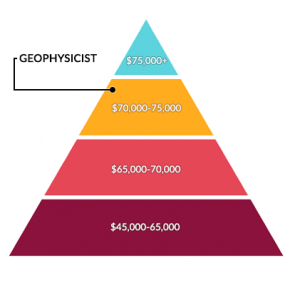All Categories
Featured
Table of Contents
Geophysical Survey - Plaza Of The Columns Complex in Inglewood WA 2021
This work is increasingly contracted out, so consultancies provide another source of employment. Consultancy companies vary in size, from really little business to large multinationals. Some consultancies are quite specialised in using specific geophysical methods or working in specific locations, while others provide a more varied variety of services to their customers.
The extraction of gas from garbage dump sites is another location of employment and this may grow in the future. Exploration business may carry out work for building firms, water business, mining business and ecological companies, so geophysicists might be employed in any of these settings. Other employers include: geological surveysgovernment bodies and agenciesuniversities and research study institutes.


Vacancies may be noted in the oil and gas sector press. Recruitment is impacted by oil cost changes and the level of competitors for positions differs depending on this. Careers Days, which cover the full variety of geoscience careers and are usually gone to by a number of key market companies, are run by The Geological Society.
Geology Careers: Degree Requirements, Cost & Salary in Melville Aus 2023
Some of the large oil and gas business offer a complete two-year structured training program throughout the breadth of geophysics, including the chance to experience operate in numerous teams prior to specialising in one location. Your training may consist of deal with: existing wellsmagnetic and gravitational possible field data analysisresearchrock analysis. Nevertheless, it's more usual for your preliminary training to be offered on the job.

There may be a probationary period during which you work together with an experienced coworker. Competency-based appraisals happen routinely in the majority of companies. In smaller firms, and for scholastic posts, there is unlikely to be any formal training - you'll be expected to start work straightaway and get abilities as you go along.
If you work for a smaller business, you might find that you require to take duty for arranging and funding your own development and training. If you have a geology degree, subscription of The Geological Society can be useful for networking and for keeping up to date with the market.
How To Become A Geophysicist in Kalamunda Western Australia 2022
You may also find it beneficial to join the PESGB (The Petroleum Exploration Society of Great Britain, which has a geophysics special interest group. After a probationary period, and once you've gained some experience, you might progress to senior geophysicist, then group leader and then into a senior function in management.
The ease of motion in between roles depends on the company structure. Study at Masters or Ph, D level in a subject related to geophysics or geosciences might assist with your career development and progression. The employment market within the oil and gas industry is very reliant on rate and this may impact your chances for profession development.
Not all jobs are reliant on the oil and gas industries. For skilled geophysicists, freelance consultancy uses an excellent route for profession advancement. You can likewise specialise in a specific location of geophysics. As a geophysicist, you're likely to have a number of jobs throughout your working life. Worldwide mobility is important for handling peaks and troughs in different countries at different times.
What Is A Geophysicist? in Kensington Australia 2023
From geophysics, it's possible to focus on seismology (finishing more training to end up being a seismic interpreter) or to move into associated areas such as engineering geology or hazard forecast.
Deciding what to study in college is a difficult choice. Even if you understand that your field of interest lies in science, what program of research study is ideal for you?
The very first step to attaining your objective of ending up being a geophysicist is making a degree. Even for entry-level positions in the field of geoscience, you'll require a bachelor's degree (a geophysicist college degree) from a certified college or university. Geophysicists must be able to: evaluate rocks, photos, and other pieces of information perform research study both in the field and in laboratories create maps and charts of their findings write reports To accomplish all this, trainees require a specialized education for geophysicist professions.
As mentioned above, you'll require a bachelor's degree in geoscience or a related discipline, such as a physical science or a life sciences, to land an entry-level task. Students can also prepare by majoring in topics like: Biology Chemistry Computer science Engineering Mathematics Physics The above geophysicist majors provide a more generalized method to a single clinical discipline, however a lot of programs require students to take one or more geology course.
Latest Posts
Geophysical Surveys - U.s. Geological Survey in Wandi Western Australia 2023
Geophysics in Mount Claremont Aus 2020
Geophysical Survey in Casaurina Aus 2020